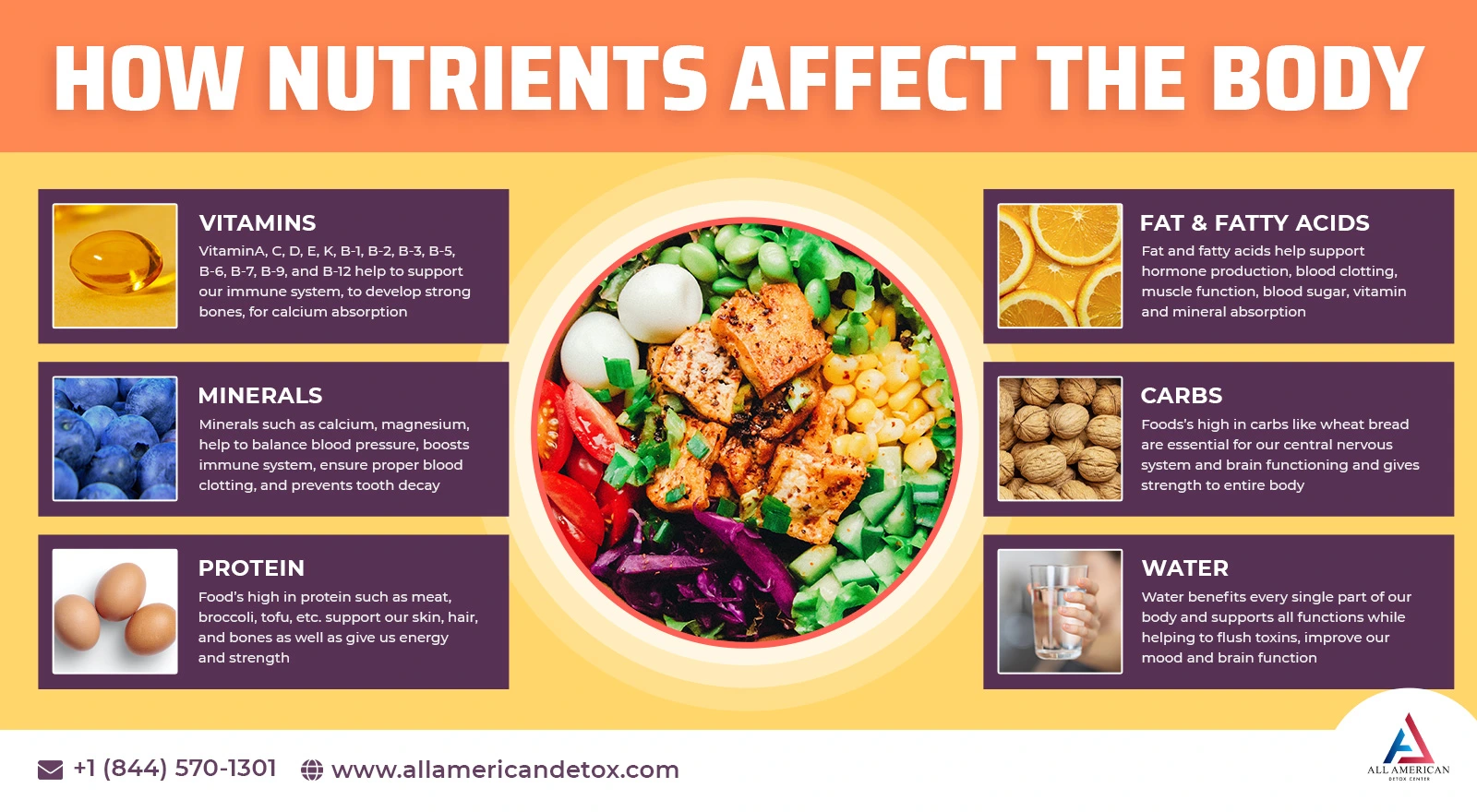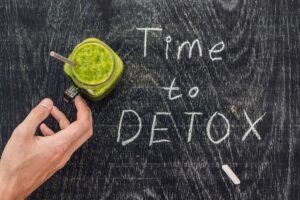When you are new to the recovery process of substance abuse, choosing to eat a healthy balanced diet while also getting enough exercise can not only help you to stay in recovery and better your chances of relapse, but it also will make you feel better emotionally, mentally, and physically. Knowing the right healthy foods to eat is very important in addiction recovery. Below, we will discuss the importance of healthy eating in addiction recovery and how can a healthy diet help addiction recovery.
Introduction
When addicted to substances, eating healthy is not always a priority and this may make your health decline. Substance use also can create problems such as vomiting, mild to severe nausea, diarrhea, and even constipation. When these instances occur, it creates a negative imbalance when your body goes to process food.
Many substances that individuals become dependent on change the way their body processes food and can result in stomach problems or gastrointestinal problems. Eating certain foods high in fiber can help with the digestion process, as well as getting enough water and exercise.
Substance use may leave you feeling down, depressed, low energy, or even annoyed or agitated but when in recovery, the right nutrition can alleviate these symptoms.
Importance of Healthy Eating in Addiction Recovery
There are so many benefits of healthy nutrition when going through the recovery process. When you eat healthily, you feel better all around. Substance abuse and addiction drain the vital resources we need to maintain optimal health.
Benefits to Healthy Eating in Recovery
- Fewer health problems
- Increased energy
- Clear mind
- Balanced mood and emotions
- Decreased chance of relapse
Oftentimes drugs and alcohol deplete your health in many ways. Sometimes, the damage of drugs or alcohol can become a permanent problem in your life. It’s important to know what drugs can affect your health and how they affect you. Below is a breakdown of how certain drugs affect the way your body works.
Opioids: Can cause constipation, nausea, upset stomach, and vomiting
Alcohol: Can cause weight gain, a deficiency in vitamin B6, thiamine, and folic acid (essential for your body)
Stimulants: Can cause dehydration and an electrolyte imbalance[iii]
Sometimes drugs and alcohol may make you develop an eating disorder. In fact, up to 50% of individuals with eating disorders also abuse drugs and alcohol.[iv]If you or someone you know may be developing an eating disorder or may be struggling with a co-occurring disorder get them to help today. There are many eating disorder programs available in and around the United States.
It’s important to develop healthy eating habits and understand the role of nutrition in addiction recovery. Some substance abuse programs can help with this, many of them provide healthy meals three times a day and can help you develop better skills in recovery.
How Nutrients Affect the Body
Nutrition and recovery go hand in hand, and it’s crucial to get the right nutrients when you’re recovering from substance abuse. When eating healthy during recovery, you will need to know how nutrients affect your body. According to the Gateway Foundation, there are six essential nutrient groups derived from food that nurture our bodies.[v]

- Vitamins: Vitamin A, C, D, E, K, B-1, B-2, B-3, B-5, B-6, B-7, B-9, and B-12 help to support our immune system, to develop strong bones, for calcium absorption, to keep skin and hair healthy and strong, aids in our brain and nervous system functioning, and support metabolism for carbohydrates and protein.
- Minerals: Minerals such as calcium, magnesium, phosphorus, potassium, sodium, sulfur, chromium, copper, fluoride, iodine, iron, manganese, selenium, and zinc help to balance blood pressure, boosts the immune system, ensure proper blood clotting, and prevents tooth decay.
- Protein: Food high in protein such as meat, broccoli, tofu, etc. supports our skin, hair, and bones as well as gives us energy.
- Fat & Fatty Acids: Sunflower oil, avocado, and other fat and fatty acids help support hormone production, blood clotting, muscle function, blood sugar regulation, vitamin and mineral absorption, immune system function, and brain function.
- Carbs: Foods high in carbs like wheat bread are essential for our central nervous system and brain functioning.
- Water: Water benefits every single part of our body and supports all functions while helping to flush toxins, improve our mood and improve our brain function.
Whether you are in recovery or not, you should be doing everything you can to get the right nutrients from the right healthy foods as well as drinking enough water every day. Improving your diet includes having regular meals, lots of water, lean proteins, whole fruits and vegetables, whole grain snacks, healthy fats, at least six to eight hours of uninterrupted sleep, regular exercise, and relaxing when necessary.[vi]
What To Eat During Addiction Recovery?
You may be feeling lost or overwhelmed when it comes to eating healthy and making sure you’re getting the most optimal nutrients for your body. You may be under a lot of stress or anxiety coming back into society, which is normal. Eating healthy can be easy, but it often takes work to maintain. Below is a list of foods that will nurture your body, as well as foods to avoid during recovery and after, this is how a healthy diet can help addiction recovery.[vii]
Foods that Nurture:
- Curry with turmeric, shellfish, chicken, turkey, fish, dark chocolate, yogurt with kiwis, almond milk, green tea, leafy green salads, tofu, poultry, bananas, whole grains, variety of fruits and vegetables, blueberries for antioxidants, beans, legumes, oatmeal, nuts, seeds, avocado oil, brown rice, peanut butter, cherry tomatoes, etc.
Foods to Avoid:
- Sugar, candy, salty foods, caffeine, red meat, too much oil, and processed foods
When avoiding foods, it is usually easier to cook and make meals from home. Eating out may seem like the easier option but is not always the healthiest. Coming up with meal plans and meal prepping will save you time and you will feel better emotionally, mentally, and physically. You can also talk to a nutritionist that can help guide you in the right direction to healthy eating.
Conclusion
It can be difficult to find addiction treatment programs that offer healthy meals and knowledge on eating healthy. Fortunately, All American Detox is all about healthy eating during recovery. All American Detox is an inpatient drug rehab center located in sunny Los Angeles California. This detox center in particular prides itself on teaching you the healthiest ways of living, including diet, nutrition, and exercise.
Here at All American Detox, you can feel safe and comfortable while detoxing from drugs as well as staying at their facilities to start your recovery process. While doing so, you will be given healthy meals and learn new skills on how to stay healthy outside of rehab. If you are ready to enter detox or inpatient treatment, call All American Detox now at (844) 570-1301 or visit their website at the link here All American Detox Center







No comment yet, add your voice below!